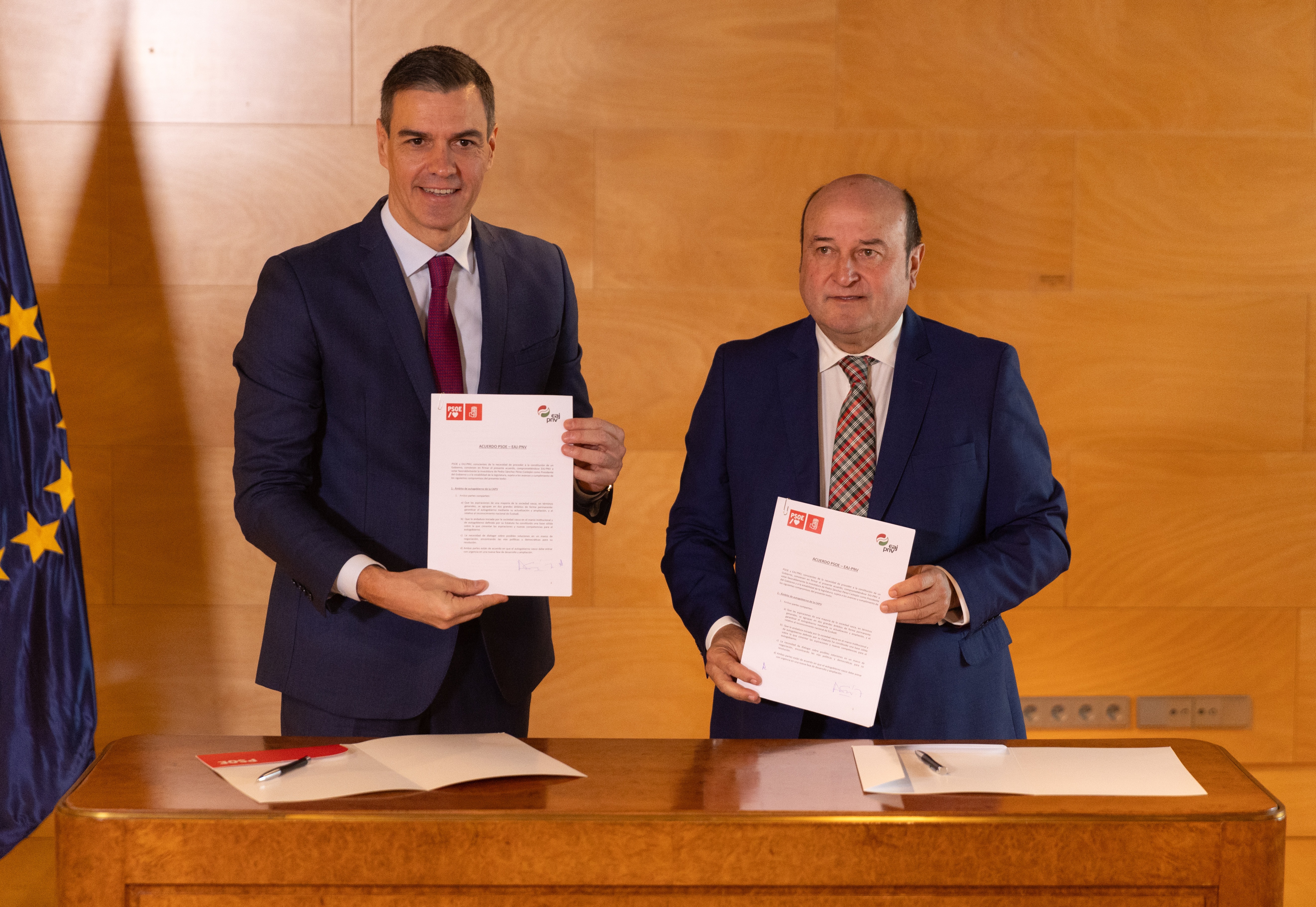Two steps forward, and half a step back. That was the story of Pedro Sánchez's progress this Friday towards securing all the votes needed to be invested as new Spanish prime minister next week. Having announced the all important deal with Together for Catalonia (Junts) on Thursday, the Socialists (PSOE) had the committed support of 173 MPs in the Spanish Congress, three short of the absolute majority of 176 which would guarantee the candidate's ability to form a new government. All that remained was to complete the expected agreement with the Basque Nationalists (PNV), whose five votes would take the PSOE candidate over the line. In the event, the Basque deal was done first thing this Friday morning. But it wasn't the last investiture news reached today: the Socialists also announced a pact with the Canarian Coalition (CC) for the vote of its solitary congressional MP. And yet by lunchtime any celebration of the predictable 179 votes for Sánchez's investiture coalition had to be left in the fridge, as at the last minute left-wing Podemos, intent on marking differences with Sumar, decided to consult its members on the party's support for Sánchez, a consultation whose result does not seem in doubt, but won't be known until Tuesday night. Junts will also consult its members on its own deal, in a vote that will take place on Saturday and Sunday.
The votes of the Basque Nationalists, essential to close the investiture, were announced this Friday morning. Within the deal, the PSOE committed to cede the economic regime of Social Security to the Basque Country within a maximum period of two years. The pact, signed this Friday by Pedro Sánchez and Andoni Ortuzar, includes that before this deadline, the Spanish government will transfers to the Basque government the powers listed in the Statute of Gernika, - the Basque Statute of Autonomy - and this is one of them. Thus, the Socialists undertake to expand the Basque economic concert, and also to negotiate on the "national recognition" of the Basque Country, in an extension of the Statute that should be ratified.
Thus, with the investiture already seeming like a done deal, the cherry on top arrived: the PSOE managed to add the Canarian Coalition, with one single MP, to the list of parties which would invest Pedro Sánchez as Spanish PM. It was an arithmetically unnecessary vote, because they had already tied up the agreements with Sumar, Catalan parties Junts and ERC, the Basques of Bildu and PNV and the Galician BNG. Now, with the 'Yes' of the Canarian deputy Cristina Valido, only the Peoples Party (PP), Vox and UPN were left on the 'No' side. Valido, in fact, supported the investiture candidacy of the PP's Alberto Núñez Feijóo a few weeks ago. The Canaries have always insisted that they are open to investing a Spanish president who is open to "complying with the Canarian agenda".
Podemos puts it on hold
After closing the agreements with Junts, the PNV and even the Canarian Coalition, the investiture of Pedro Sánchez seemed completely on track. However, this Friday, Podemos announced a consultation with its members to decide whether or not the party's five deputies should support the Socialist candidate. It should be remembered that the electoral union between the original anti-austerity party and new platform Sumar was not completed until the last minute, under pressure of the July 23rd snap election, and their relationship has always been marked by the reluctance of Yolanda Díaz to bring Podemos politicians into the centre of the Sumar platform. Now, it is Ione Belarra's party which is tensing the rope, calling a consultation with members that will last until the evening of next Tuesday, November 14th, hours before Pedro Sánchez's investiture session begins.
However, in a video in which the Podemos secretary general announces the consultation, Ione Belarra also gives support to Pedro Sánchez, although she considers that the PSOE "is wrong to disdain" its former junior partners in government, by failing to arrive at any programmatic agreement with them, as it did with Sumar. Podemos have also called to retain their presence in the Spanish cabinet in the new version of the progressive coalition, although at this time the likelihood of that is unknown.

